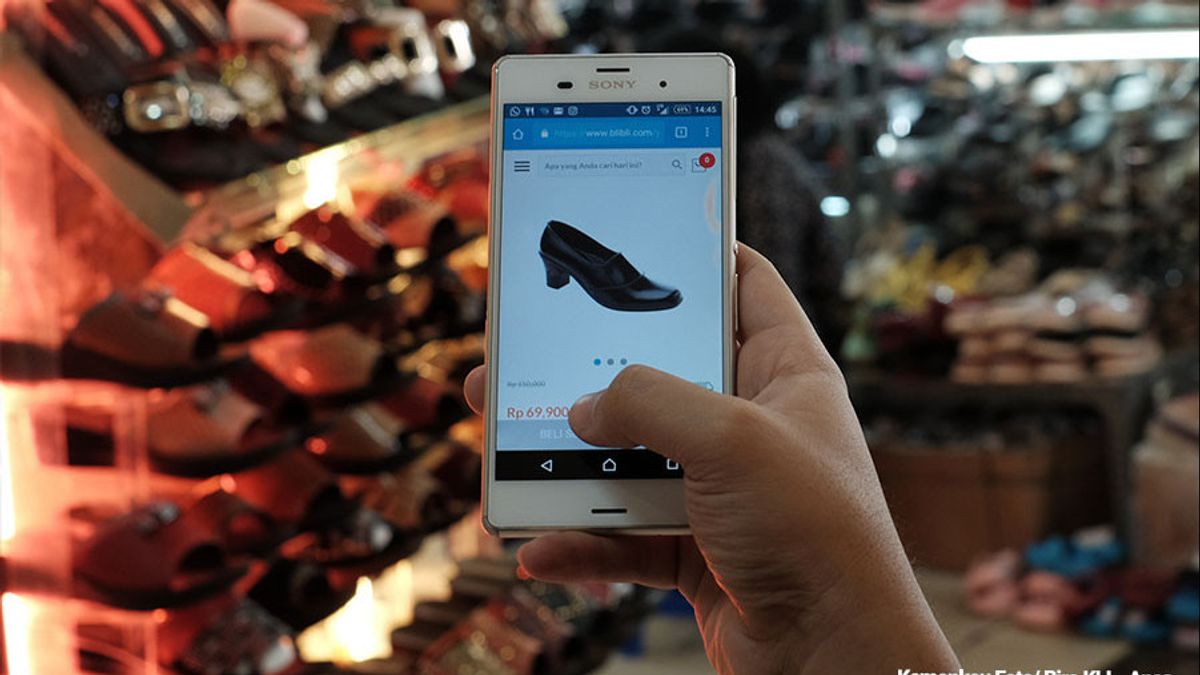The Directorate General of Taxes (DGT) of the Ministry of Finance stated that the government stated that it would not rush to release provisions that appoint e-commerce platforms as cutting or tax collectors.
Head of Sub-Directorate for Trade, Services and Other Indirect Tax Regulations, DJP Bonarsius Sipayung, said that there are still many aspects that need to be considered before enforcing the stipulation.
"We have not implemented it. This means that we are still considering directions from the leadership, how will we collect taxes later," he said in a written statement on Monday, November 28.
Bonarsius also explained that the first consideration was economic conditions that were still in the process of recovering from the COVID-19 pandemic. The second consideration is infrastructure readiness, and the last is related to easy rates and administration.
In addition, he admitted that he would communicate with a number of parties to convey the government's wishes, namely to make the country more advanced by formalizing MSMEs.
"The biggest issue of MSMEs in paying taxes is the lack of their ability in terms of administration. Therefore, DGT will think of an easy and simple administrative process," he said.
According to Bonarsius, another challenging aspect is the location of the seller's erratic place in selling his merchandise through e-commerce is also a challenge in collecting taxes.
"Because of how we tax people we've never seen with a business, that's how it is," he said.
For information, referring to Danny Darussalam Tax Center (DDTC)'s study, it was revealed that 49.3 percent of MSME actors did not agree if the marketplace became cutting and collecting taxes.
It was stated that online MSME actors were more comfortable if the taxes owed could be calculated and paid themselves to the tax authorities. In addition, DDTC found that online MSME tax collectors could reduce the participation of MSMEs selling online by 26 percent.
This is due to the tendency of MSME actors to migrate to other sales platforms, such as social media and physical stores. This can also make MSMEs return to the shadow economy ecosystem or the informal economy. If so, the MSME tax base will actually decrease," said the minutes.
DDTC FRA assessed that the government must consider the implementation of the recapitulation of MSME transaction data by the marketplace. At this stage, DGT needs to openly and massively announce and socialize the plan to implement data recapitulation to MSME actors.
In addition, in connection with the plan to ratify the Personal Data Protection Bill (PDP), DGT also needs to seek approval (consent) from MSME actors to recapitulate the data and submit it to the DGT and its partners, in this case, the e-commerce platform.
Furthermore, DGT also needs to evaluate the implementation of data recapitulation results, including formulating technical rules, synchronizing data, and others. At this stage, the government can also start formulating regulations regarding tax cuts through the marketplace and also mapping the needs of technology infrastructure needed so that the implementation of levy cuts runs smoothly.
Finally, the government can start socialization and implementation of the tax cutting and collection system. In DDTC calculations, these three stages take at least about two to three years.
The English, Chinese, Japanese, Arabic, and French versions are automatically generated by the AI. So there may still be inaccuracies in translating, please always see Indonesian as our main language. (system supported by DigitalSiber.id)




